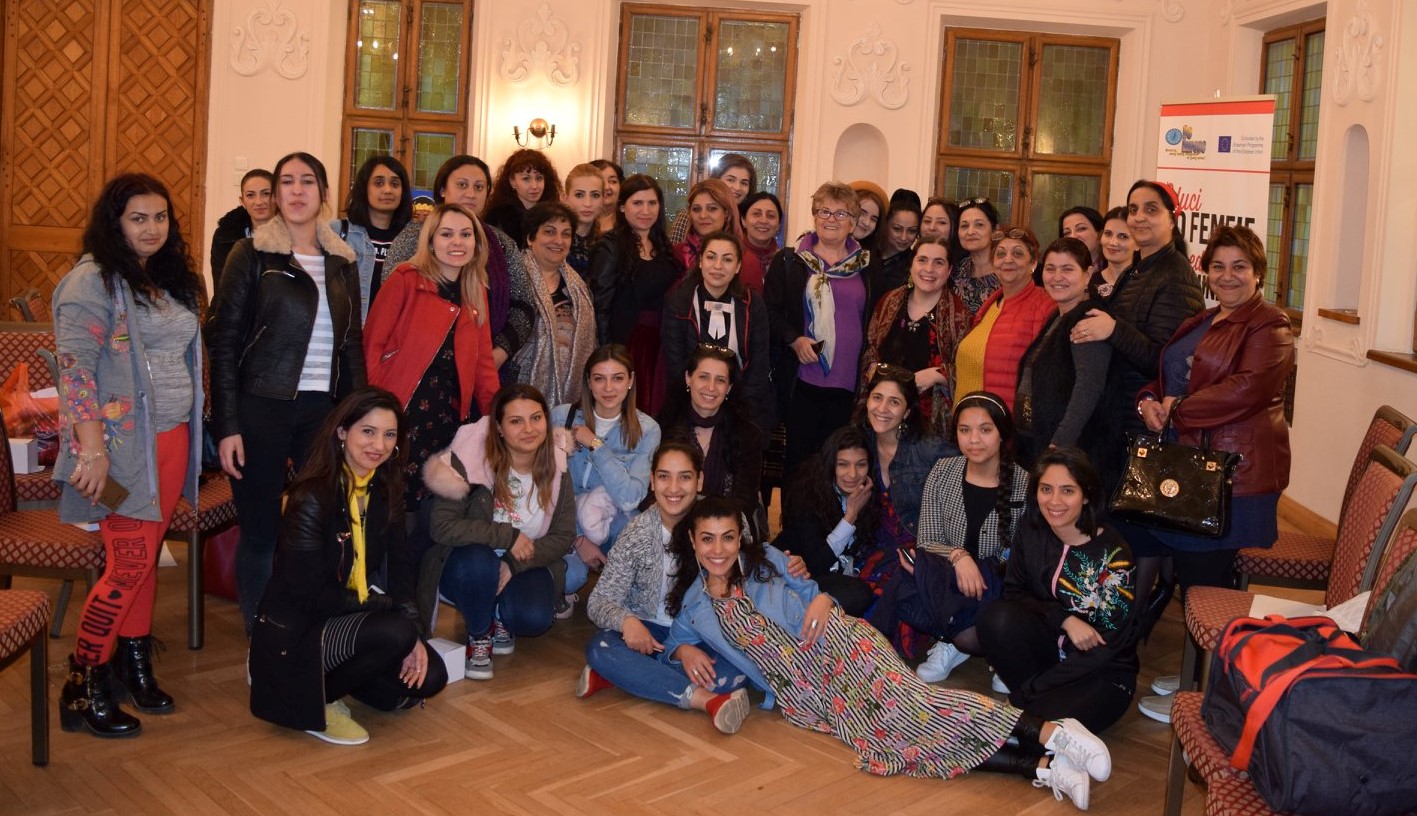To celebrate International women’s day, on March 5. 2019 together with e-Romnja Roma Women Association, we bring together 70 Roma women and girls from different parts of Romania to Bucharest. We bring together younger girls with older women in order to create a generational dialogue and to present role models. The event was exclusively feminine because we wanted to create a safe space where women talk openly about their issues and e-Romnja has the experience that women are more open to talk in exclusively women spaces.
The meeting started with the presentation of e-Romnja’s online campaign called 100 Roma Women for the Centenary, which aimed to show the participation and involvement of Roma women in different levels like in education, health, political life, community organizing and activism. Participants discussed the contribution of the Roma women in the Roma community, in the society and in the history of Romania. The organizers invited possible role models for the young generation to encourage and empower them and also to celebrate together all the work that they are doing in the Roma communities and their efforts in contributing to change the situation of Roma women.
We had a panel-discussion with significant Roma women with experience and expertise in working with Roma women and youth and also with Roma women from the grassroots level who are involved in changing the situation from the local level through different methods and activities like going to the local council meetings and standing up for their rights and issues, or who are organizing different street actions in order to raise awareness on racism and discrimination or domestic violence for instance towards Roma women. We also presented the work of Roma women who are involved in the education, health and political level.
Women from the panel talked about how important it is to get to know other Roma women who can empower you. They also talk about the access to education for girls, about solidarity and social justice.
Roma women face multiple and intersectional discriminations, as women, members of a stigmatized ethnic minority, being at higher risk of social exclusion and poverty. We believe these positive and empowering stories are important elements to build Roma feminism and a meeting gave a great space also to discuss how this feminist movement can contribute to a broader Roma civic movement in Romania and in Europe.
The meeting was part of the Roma Youth Voices project, funded by the Rights, Equality and Citizenship Programme of the DG Justice, European Commission.



